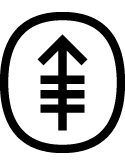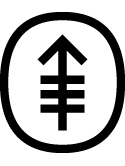Comparative regimens for the ex vivo chemopurification of B cell lymphoma-contaminated marrow Journal Article
| Authors: | Gulati, S. C.; Atzpodien, J.; Langleben, A.; Shimazaki, C.; Jain, K.; Yopp, J.; Ng, R. P.; Colvin, O. M.; Clarkson, B. D. |
| Article Title: | Comparative regimens for the ex vivo chemopurification of B cell lymphoma-contaminated marrow |
| Abstract: | The success of autologous bone marrow transplantation for B cell lymphoma may depend on the efficacy of in vitro purification of patients’ tumor cell-contaminated marrow. In this study, we tested the toxicity of seven different chemotherapeutic agents against two B cell lymphoma lines (LY-16 and SK-DHL-2) as compared to normal human bone marrow granulocyte-macrophage progenitor cells (CFU-GM). 4-Hydroper-oxycyclophosphamide (4-HC), VP-16-213 (VP-16), nitrogen mustard, and vincristine showed a highly selective toxicity against cultured lymphoma cells; i.e., at doses sufficient to induce a 4-log clonogenic tumor cell reduction (4-HC 21 μg/ml, VP-16 50 μg/ml, nitrogen mustard and vincristine 5 μg/ml), 10.0±6.7, 3.0±3.2, 23.2 ±22.7 and 24.0 ± 17.0% (mean ± 1 SD), respectively, of normal bone marrow CFU-GM were preserved. The differential sensitivity of tumor cells and normal hematopoietic precursors was less prominent after exposure of cells to m-diamminechloroplatinum II (c/s-platinum); thus, at a drug dose of 100 μg/ml, all detectable lymphoma cells could be eradicated (i.e., ≥4 log reduction) while a CFU-GM recovery of only 0.2 ± 0.2% was observed. In contrast, adriamycin and bleomycin, at the highest tumoricidal concentrations tested (5 and 100 μg/ml, respectively) did not exhibit a selective toxicity toward lymphoma cell lines. In summary, our results suggest that nitrogen mustard and vincristine, as well as 4-HC and VP-16, may be useful agents for the ex vivo treatment of bone marrow grafts form B cell lymphoma patients. © 1988 S. Karger AG, Basel. |
| Keywords: | clinical article; cisplatin; doxorubicin; antineoplastic agents; comparative study; bone marrow; etoposide; cell line; cyclophosphamide; vincristine; chlormethine; b-lymphocytes; b cell lymphoma; cell culture; lymphoma; bleomycin; bone marrow transplantation; cell separation; autologous bone marrow transplantation; 4 hydroperoxycyclophosphamide; mechlorethamine; human; priority journal; support, non-u.s. gov't; support, u.s. gov't, p.h.s.; marrow chemopurification |
| Journal Title: | Acta Haematologica |
| Volume: | 80 |
| Issue: | 2 |
| ISSN: | 0001-5792 |
| Publisher: | S. Karger AG |
| Date Published: | 1988-01-01 |
| Start Page: | 65 |
| End Page: | 70 |
| Language: | English |
| DOI: | 10.1159/000205604 |
| PUBMED: | 2458665 |
| PROVIDER: | scopus |
| DOI/URL: | |
| Notes: | Article -- Export Date: 6 August 2020 -- Source: Scopus |
Altmetric
Citation Impact
BMJ Impact Analytics
Related MSK Work





